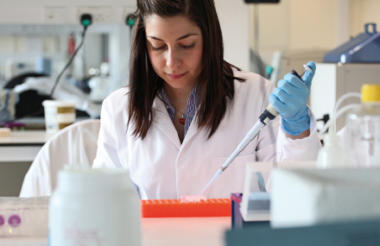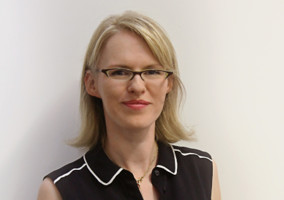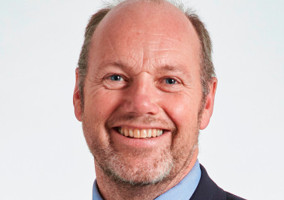I joined Parkinson’s UK five years ago with a remit to modernise the charity, and help us find new ways to do more for people with Parkinson’s.
Like most charities, Parkinson’s UK manages to deliver much with relatively little. Our existing information and support model offers a brilliant quality service, but can only meet around a third of current demand. And as Parkinson’s is the fastest-growing neurological condition in the world, we know that the challenge is only getting bigger.
When the mission you exist to tackle far outstrips your capacity, it’s time to try something new.
Parkinson’s UK has adopted a combination of Agile and Design Thinking ways of working to help us answer our most pressing question: how can we scale up to be there for thousands more people in a sustainable way?
What are Agile and Design Thinking methodologies?
Much has been written about both Agile and Design Thinking. These methodologies are commonplace in other sectors - from manufacturing to telecoms - but less so in charities. And at first, they were met with a combination of curiosity and suspicion at Parkinson’s UK. The language is unfamiliar, so I like these simple definitions:
-
Design Thinking is a set of problem-solving processes that focus on the end user’s needs above all else. Design thinking promotes regular gathering of user insight and applying an iterative, hands-on approach to creating innovative solutions.
-
Agile is an approach where cross-functional teams collaborate to deliver projects by breaking down the work into manageable chunks (or ‘sprints’), iterating towards the end goal, rather than trying to follow a big, predetermined plan.
What these two methodologies have in common is a heavy emphasis on insight and the simple mantra: test, learn, improve.
What impact have we seen from adopting these new approaches?
Embracing Agile and Design Thinking has given us a route to solving our main challenge - how to scale our services sustainably.
In 2019 we brought together a cross-organisational team to tackle this challenge. We paired advice and healthcare workers with service designers, data analysts, product managers, content designers and developers. We set them up in a Design Thinking-led Agile team and, most importantly, prioritised this work over the umpteen other things going on in the charity. We’ve called this ambitious service redesign programme Parkinson’s Connect.
- The process followed six months of discovery sprints: researching and prototyping different operational models, products and experiences with people affected by Parkinson’s to create a new blueprint for how support can be delivered most effectively.
- Six months of Alpha test-and-learn experiments: making the best of these ideas a reality as MVPs (minimum viable products), including new integrations with the NHS as well as changes within our own operating model.
- Three-month pandemic pivot: having a team that were used to responding rapidly to new insight meant we were able to implement brand new Covid-response areas of our service within weeks. These included a tailored information tool and an adviser appointment booking service - 80% of people who used these services were new to the charity.
- Nine months of beta testing and development: We now have three live NHS clinics referring newly diagnosed people to Parkinson’s UK through an online portal so we can be there for them from day one of their Parkinson’s journey with proactive and personalised support.
We’re excited to be moving into a live scale-up phase towards the end of this year with more NHS sites referring people, new tools and personalised content journeys, and scalable distribution of our expert advisers.
Lessons learnt
Underpinning the radical change we’re seeing by adopting Agile and Design Thinking for Parkinson’s Connect are a handful of important lessons:
- Challenge organisational wisdom
Assumptions are bad. The mechanics of Agile and Design thinking force you to challenge your organisational wisdom. We found the simple exercise of separating ‘what we know’ (i.e. what do we have substantial evidence to support) from ‘what we think we know’ (opinions and anecdotal or historical knowledge) got us to the right solutions much faster. These ways of working have given us a much stronger culture of insight gathering, sharing and use.
-
Break down silos through cross-functional teams
Most charities I know struggle with silo working. Teams plan and work independently of the wider organisation. Both Agile and Design Thinking require cross-functional teams - specialists from different functions collaborating daily with shared goals and plans. It gets people learning from each other, leading to faster decision making, fresher ideas and joined up experiences, products and campaigns. Teams that work using an Agile approach are also very autonomous, boosting morale, and removing the slow, paternalistic culture of decision by committee that charities so often suffer from.
-
Modernise skill sets
Parkinson’s Connect has only been possible because we took the best of our traditional skills (Advisers, service managers, healthcare workers) and paired them with designers, content creators and technologists. Where we didn’t have those skills in-house we in-sourced them from expert partners (FutureGov and Manifesto), and upskilled our people. Hiring a load of new people is a luxury most charities can’t afford, but every vacancy is an opportunity to bring in different skills, and borrowing people from trusted partnerships can make a big impact.
It has given us the space to think big
Bringing together cross-functional teams and helping them learn new skills, work with audience insight, and prototype their way to bold new solutions is delivering the change we desperately needed.
Parkinson’s UK’s values are people first, pioneering, uniting and driven. Adopting a Design Thinking driven Agile approach has given us a way to really live these values in our ways of working. It has also helped to future-proof the charity in a rapidly changing world, ensuring that we can be there for everyone living with Parkinson’s, now and in the future.
Julie Dodd has been Parkinson’s UK’s director of transformation from 2016-2021 and now works as an independent transformation consultant helping organisations rethink their culture, ways of working and use of technology to deliver greater social impact.
Related articles











